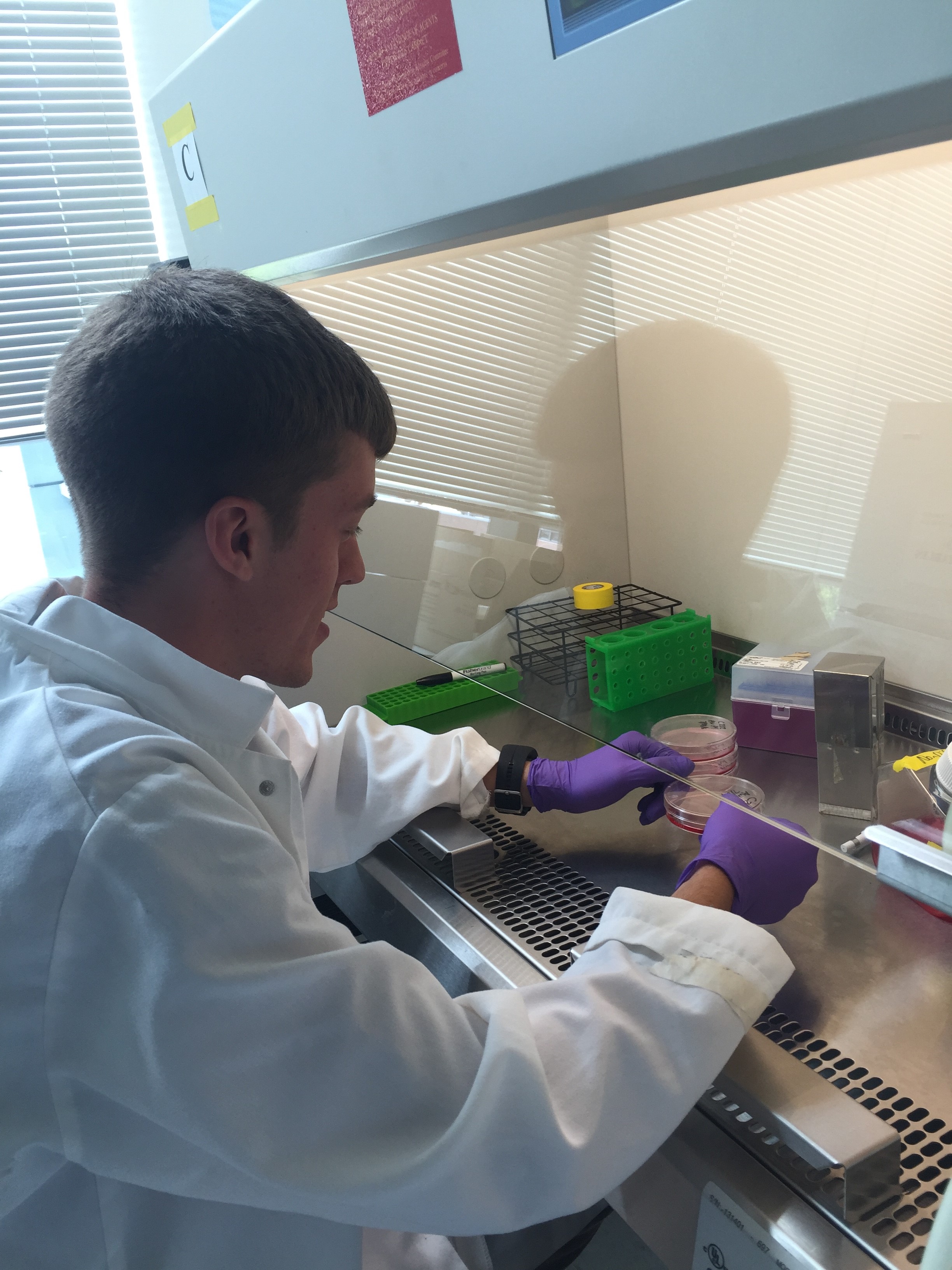Andrew Witten | Protein Research
 What type of research have you been working on?
What type of research have you been working on?
In 2014, I started working as an undergraduate researcher under Dr. Kinzer-Ursem. My independent research topic involves developing selective proteins tagging methods with non-natural analogs of amino acids and fatty acids. These analogs are taken up by cells and incorporated into the newly synthesized proteins allowing us to identify protein synthesis (amino acid incorporation) and protein post-translational modification (fatty acid incorporation) at select time points and in response to particular cues, such as differentiation. Our ultimate goal is to use the developed methods to visualize post-synaptic protein dynamic in neurological disease states.
Why did you choose to work in Dr. Kinzer-Ursem's lab?
During the fall semester of my sophomore years in BME 201, Dr. Kinzer-Ursem gave a guest lecture presenting her lab's research. One of the topics was on modeling the protein dynamic in post-synaptic neurons to understand long-term potentiation (LTP). In high school, I worked on a project related to memory, neurons, and LTP. I was interested in learning more about it from a research perspective. I met with Dr. Kinzer-Ursem later that week to have a more in-depth discussion. At the end of the meeting, she offered me a position as an undergraduate researcher in her lab.
What have been your favorite parts about working there?
My favorite part of working in my lab is how friendly everyone is. The graduate students are very helpful and patient. They understanding that the lab is new place for undergraduates and are will to assist you whenever you need it. In addition, I enjoy the challenges of research. Research is like a huge puzzle, although it can get frustrating at times, getting the results that you set out to get is the most rewarding and satisfying experience. Through all the experiments, research has taught me advance problem solving skills and has improved my ability to think critically about the research problem we are investigating.
How has this influenced your future academic or career plans?
In the future, I am interested in attending graduate school to continue my research with protein engineering methods and neuronal protein interactions. I believe in lifelong learning and through a graduate program, I could investigate my passion of understanding neuropathology while making invaluable research connections and increasing my research skill set. My long term goals are to pursue an MD/PhD program and become a practicing physician scientist. As a physician scientist, I want to work with patients as a neurologist and do research to further investigate neurological disease.
What advice would you give to students who are interested in doing research with a professor?
Don't be afraid of contacting or talking to a professor about conduction research. It may seem scary but they are actually looking for new undergraduate students to conduct research all the time. You might have better luck than you think. Also, research takes a large portion of your time so make sure you manage and plan your schedule.
